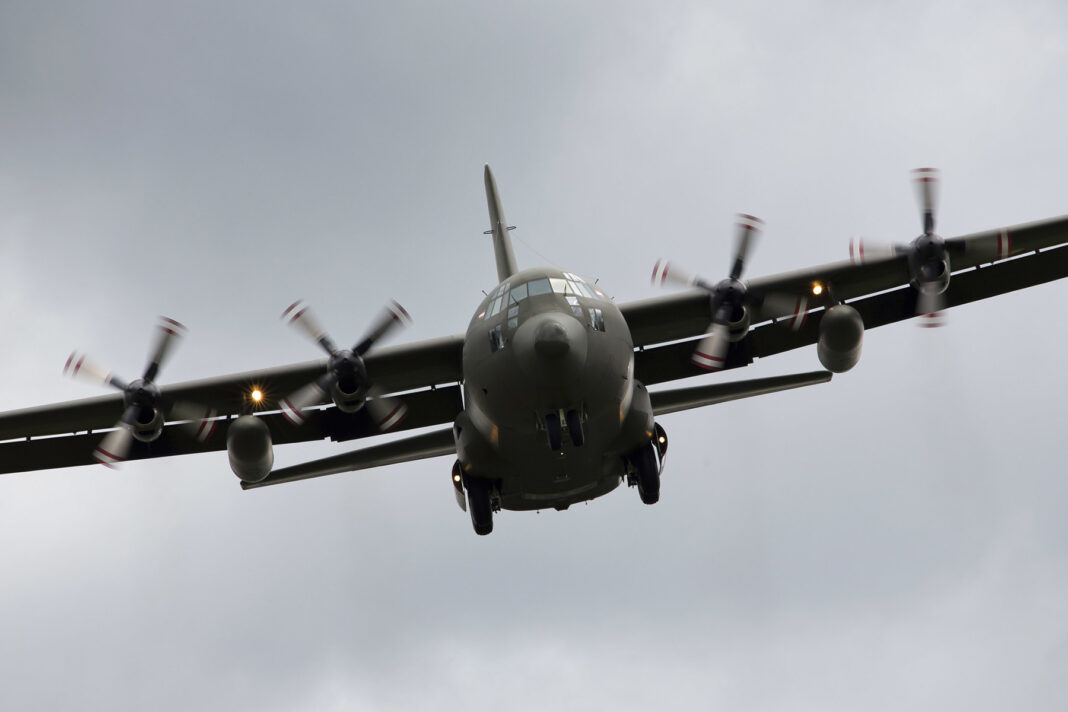Under the impression of the evacuation of Austrian citizens from Israel on an army plane, which did not take place after all due to technical problemsthe National Defense Committee on Wednesday with topics relating to airspace.
While the opposition spoke of an “indictment of poverty”, Defense Minister Klaudia Tanner took the incident as an opportunity to once again point out the indispensability of the investments in the armed forces. The debate about Austria’s planned accession to the Sky Shield air defense system was caught between the need for effective air defense and concerns regarding Austrian neutrality. Tanner on the Hercules mishap: Austrian Armed Forces in the state in which politicians left them
Current events would show that the decision to reduce the to massively increase the budget for national defense “was necessary and correct”, as Defense Minister Tanner stated in her introduction. She referred to the planned repatriation of Austrian citizens from the Israeli crisis area, which was prevented due to a technical defect in the Hercules transport aircraft. This aircraft was 56 years old, Tanner emphasized the importance of investing in the reconstruction of the Austrian Armed Forces. In response to a question from Manfred Hofinger (ÖVP), she explained that the planning process to increase air transport capacities had already begun at the end of 2020. had already begun. Cooperation with other countries such as the Netherlands is also already underway with the aim of carrying out procurements as quickly as possible. Suitable equipment must be able to transport Black Hawk helicopters, for example, according to Tanner. https://militaeraktuell.at/das-bundesheer-entscheidet-sich-fuer-die-embraer-c-390/ Reinhold Einwallner (SPÖ) spoke of an “indictment” of Austrian defense policy, as the country is not in a position to fulfill “basic competencies” such as evacuating its own citizens from abroad. In this situation, it was not appropriate to “make small political change”, Tanner replied. She had found the armed forces in the state in which “politics had left them”. Tanner said that every parliamentary group could feel addressed – or not, as the case may be. Moreover, the Austrian Armed Forces were not primarily responsible for evacuations, but the Foreign Ministry, she clarified. However, Tanner accepted responsibility for today’s prevention. Tanner replied to Hubert Fuchs (FPÖ) that civilian flights as well as land and sea routes were still available. Sky Shield: concerns about neutrality
Another dominant topic was the international air defense system Sky Shield. An expert from the Ministry of Defense described ground-based air defence as the army’s “problem child”. The nature of military operations in recent years had led to this area being neglected by all Western nations. For the most part, these have been “stabilization missions” without an “enemy in the air”. However, current threat scenarios such as cruise missiles or drones require a corresponding defensive capability, the expert explained.
In response to questions posed by Robert Laimer (SPÖ), Gerhard Kaniak (FPÖ) and Helmut Brandstätter (NEOS), among others, regarding the compatibility of Austria’s accession to Sky Shield with Austria’s neutrality, Defense Minister Tanner replied that the International Law Office of the Foreign Ministry had examined the “Letter of Intent” signed for this purpose in this regard. It was the signing of this letter that had made it possible to view the planning documents for the system and thus estimate the costs. The national autonomy of the command structure, which is essential for maintaining neutrality, is part of the document, as an expert from the ministry added. Tanner Gerhard Kaniak replied that the joint procurement of weapons systems was also financially advantageous and could be implemented more quickly in cooperation. Furthermore, there is no independent expertise in the armed forces for the implementation of complex weapon systems. However, Tanner could not yet provide more detailed information on the procurement strategy or award procedure. In response to Hubert Fuchs’ (FPÖ) question as to whether the establishment of the air defense system would necessitate an amendment to the National Defense Financing Act (LV-FinG), she answered in the affirmative, referring to the budget negotiations. David Stögmüller from the Green Party also asked about the Procurement Control Commission anchored in the LV-FinG. According to Tanner, this commission had already held “intensive meetings” and its list of criteria was being finalized. Manfred Hofinger (ÖVP) was also interested in pilot training and upgrading the Eurofighter and Helmut Brandstätter (NEOS) in military data exchange with other countries.










